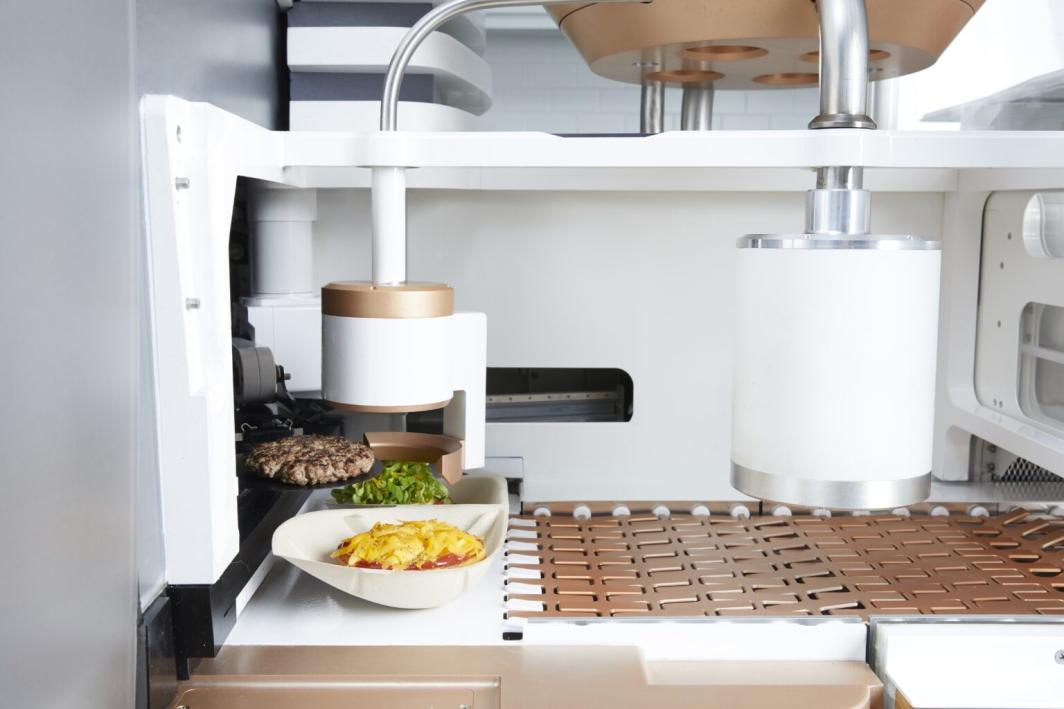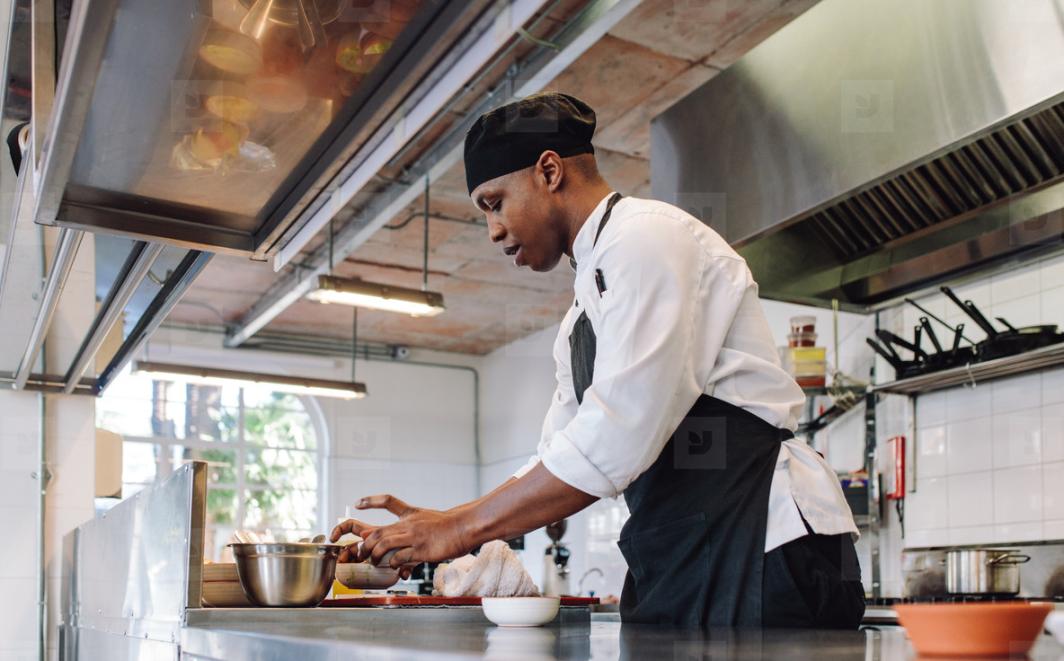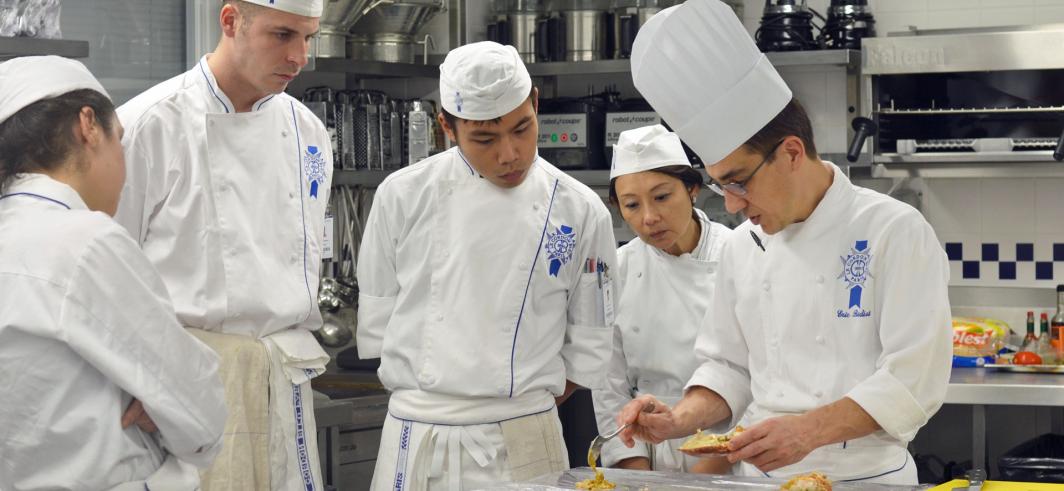How Can Chefs Collaborate with AI to Create Innovative Dining Concepts?
The culinary world is on the cusp of a transformative revolution, driven by the convergence of cutting-edge technology and the artistry of chefs. Artificial intelligence (AI) is emerging as a powerful tool that has the potential to revolutionize the way chefs create, prepare, and serve food. This article explores the exciting possibilities of chef-AI collaboration and its potential to redefine the dining experience.

AI In The Culinary World
AI is already making waves in the culinary industry, with applications ranging from recipe generation and analysis to food pairing recommendations and menu planning. AI-powered kitchen automation and robotics are streamlining operations and reducing labor costs, while smart appliances and devices are empowering home cooks with unprecedented convenience and control.
- Recipe Generation and Analysis: AI algorithms can analyze vast databases of recipes to identify patterns, trends, and flavor combinations. This information can be used to generate new recipe ideas, optimize existing recipes, and provide personalized recommendations to diners.
- Food Pairing Recommendations: AI can analyze the flavor profiles of different ingredients and suggest harmonious pairings. This can help chefs create dishes that are both delicious and visually appealing.
- Menu Planning and Optimization: AI can analyze sales data, customer feedback, and dietary restrictions to create optimized menus that maximize profitability and customer satisfaction.
- Kitchen Automation and Robotics: AI-powered robots are being used to automate repetitive tasks such as chopping, slicing, and plating. This can free up chefs to focus on more creative and fulfilling aspects of their work.
- Smart Appliances and Devices: Smart ovens, refrigerators, and other appliances can be programmed to cook food perfectly and efficiently. They can also be integrated with AI-powered recipe apps to provide step-by-step instructions and personalized cooking recommendations.
Chef-AI Collaboration: A Symbiotic Relationship
The collaboration between chefs and AI is not a zero-sum game. Instead, it is a symbiotic relationship where both parties can benefit from each other's strengths. Chefs bring their creativity, culinary expertise, and passion for food, while AI provides powerful tools for data analysis, optimization, and automation.

By leveraging AI's capabilities, chefs can:
- Generate new recipe ideas and flavor combinations: AI can analyze vast databases of recipes and identify patterns and trends that humans might miss. This can inspire chefs to create dishes that are truly unique and innovative.
- Analyze customer feedback and preferences: AI can collect and analyze customer feedback to identify trends and patterns. This information can be used to improve existing dishes, develop new menu items, and personalize the dining experience.
- Optimize kitchen operations and reduce waste: AI can analyze kitchen data to identify inefficiencies and opportunities for improvement. This can help chefs streamline their operations, reduce waste, and improve profitability.
- Develop personalized dining menus: AI can analyze individual dietary preferences and restrictions to create personalized dining menus that cater to each diner's unique needs.
Case Studies Of Successful Chef-AI Collaborations
Several chefs have already successfully collaborated with AI to create innovative dining concepts. Here are a few examples:
- Chef David Chang and IBM Watson: Chef Chang partnered with IBM Watson to create a new line of dumplings inspired by global cuisines. Watson analyzed data on ingredients, flavors, and cooking techniques to generate unique dumpling recipes that were both delicious and innovative.
- Chef Daniel Boulud and Google AI: Chef Boulud worked with Google AI to develop a personalized dining experience at his restaurant, Daniel. AI analyzed customer feedback and preferences to create customized menus for each diner. The result was a highly personalized and memorable dining experience.
- Chef Vikas Khanna and Microsoft Azure: Chef Khanna collaborated with Microsoft Azure to create a virtual cooking assistant that provides step-by-step instructions and personalized recommendations. This assistant helps home cooks create delicious meals with ease and confidence.
Ethical Considerations And Future Outlook

While chef-AI collaboration holds immense promise, it also raises important ethical considerations. One concern is the potential for job displacement as AI-powered robots and automation take over repetitive tasks in the kitchen. Another concern is the importance of transparency and accountability in AI systems. It is essential that chefs and diners understand how AI is being used to create and prepare food.
Despite these challenges, the future of chef-AI collaboration looks bright. As AI technology continues to advance, we can expect to see even more innovative and exciting dining concepts emerge. AI has the potential to revolutionize the way we think about food, cooking, and dining. It is an exciting time to be a chef, a diner, and a lover of all things culinary.
The collaboration between chefs and AI is a transformative force that has the potential to redefine the dining experience. By leveraging AI's capabilities, chefs can create innovative dishes, optimize kitchen operations, and personalize the dining experience for each customer. While there are ethical considerations to be addressed, the future of chef-AI collaboration is full of promise. It is an exciting time to be a part of this culinary revolution.
YesNo

Leave a Reply